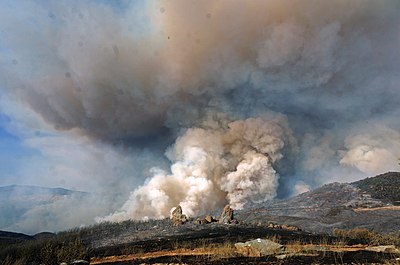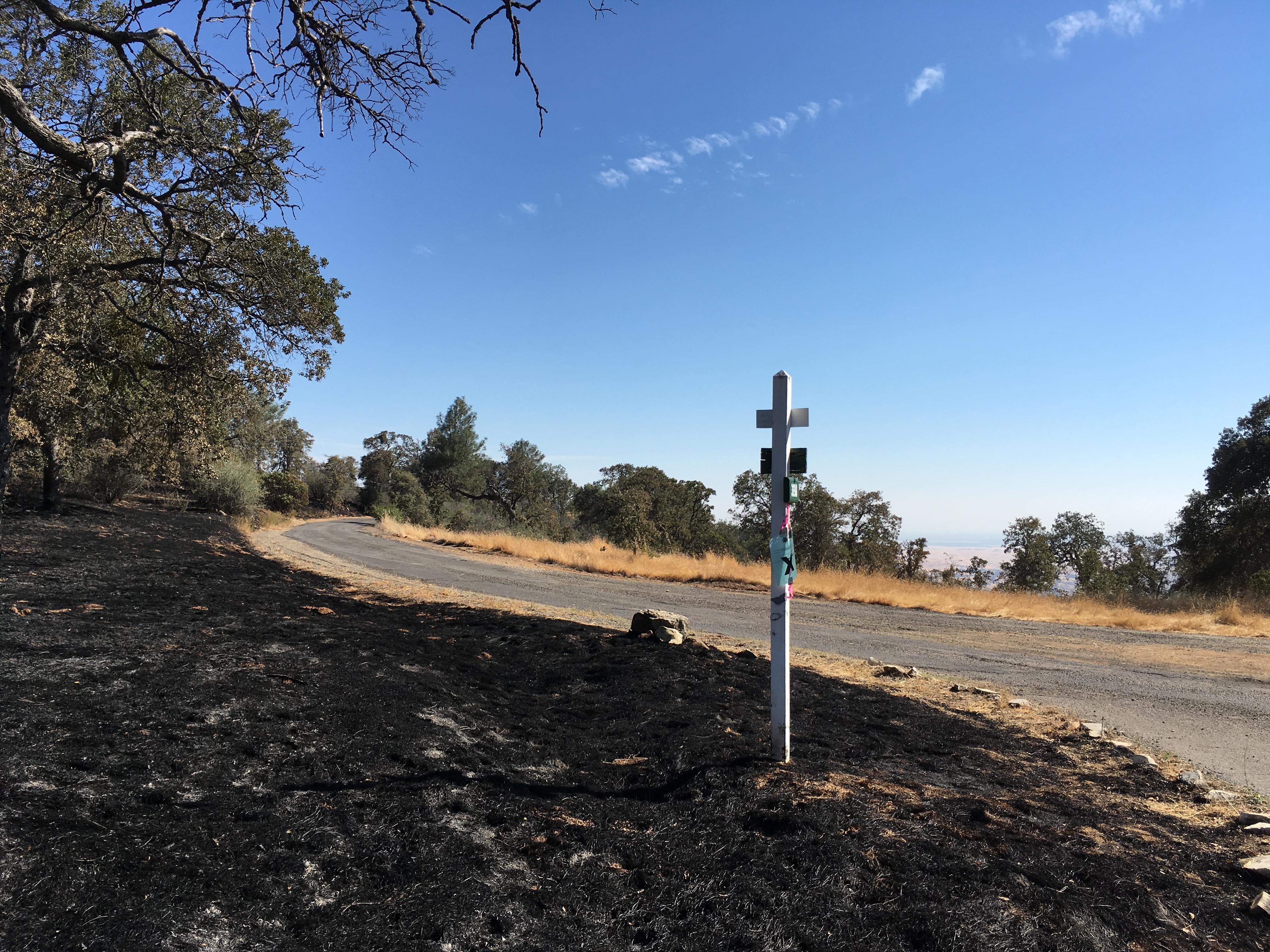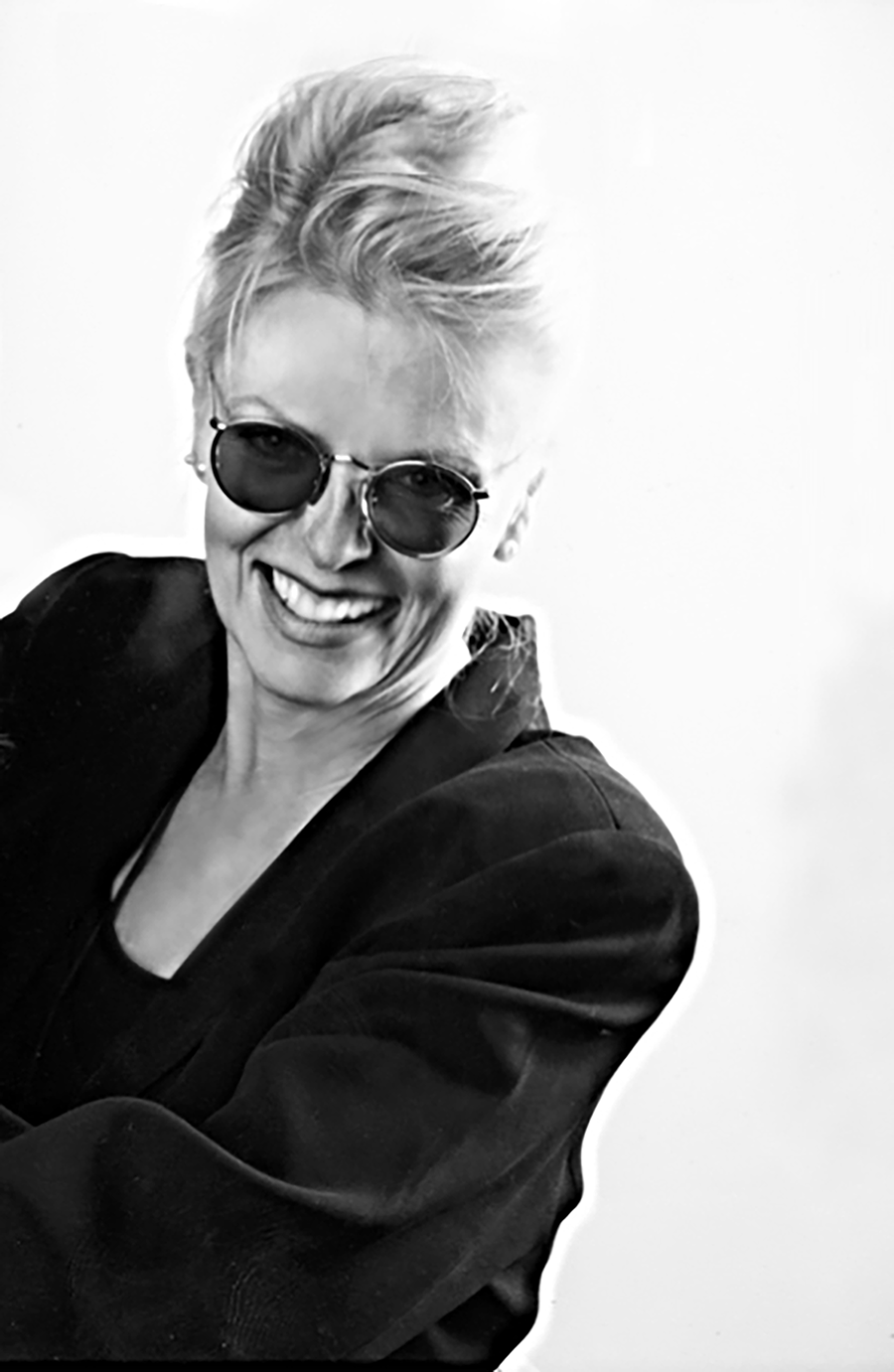Chances are, when Cal Fire or your local emergency management authority broadcasts, texts or posts an official Evacuation Advisory for your area you won’t be thinking about lipstick.
And that’s appropriate. You can’t eat or drink lipstick. You can’t use it for first aid. It won’t keep you warm, or dry. You can’t open or charge anything with it. But as you grab your emergency supply kit (hopefully, carefully put together a long time ago and easily accessible), collect your backup hard drives, vital documents, family photos and irreplaceable art, wallet with cash or credit cards and pets, plan where you will stay and whom you will call—don’t forget your lipstick.
I’m obviously writing as a woman who wears it and is semi-recognizable without it. However, the acquired wisdom I’m sharing here applies to anyone. If you aren’t a lipstick wearer, consider it a metaphor for the one personal item that most identifies you when you look in the mirror. The one thing you not only never leave home without wearing—be it MAC Créme d’ Nude, your Guardian Angel necklace—but which you wear around the house even if there is no one else to see. The thing that makes you feel whole. Even if your safety is in question.
The reason? If the unthinkable is now thinkable, and you are either living or about to live as a headline in what until now has been other people’s catastrophes, the simplest personal pushpin will become one of your emotional lifesaving anchors.
I discovered this as an evacuee from the 2017 Detwiler Fire, which on Sunday, July 16 unofficially launched the 2017 California wildfire season. In terms of property damage the most destructive wildfire season on record in California at the time, with a total of 9,133 fires burning 1,381,405 acres of land according to the California Department of Forestry and Fire Protection. The total economic cost, including fire suppression, insurance, direct and indirect economic losses, and recovery expenditures was estimated at about $180 billion. In my community of Mariposa County, the Gold Rush gateway to Yosemite National Park, for the first time in its history the entire town of Mariposa was under mandatory evacuation as the Detwiler Fire literally licked at the doors of local businesses and homes, destroying 131 structures including 63 homes. By the time it was fully contained on August 24, Detwiler had burned 81,826 acres. The cause, still under investigation, was a firearm discharge in high-risk, extremely dry ranch land, instantly whipped by strong, low-humidity winds.
I received an evacuation advisory on Tuesday morning, July 18—the first of my life, including my 25 years in Mariposa County. An evacuation advisory means that a mandatory evacuation is possible and that citizens should be prepared to evacuate on short notice. I took it seriously. Heavy big backpack always kept in the back of my primary vehicle, the Audi with 570-mile fuel range, with first-aid kit, portable food and water with chlorine tablets to purify untreated water if needed, portable solar charger, portable reflective blanket, extra athletic shoes, you name it. Without haste, I conscientiously detached the two 4TB external hard drives from both iMacs in my office from which my life and my business, starting with vital records and saved projects going back to 2009, could be recreated. Chargers and extra cables for my mobile devices.
Spot decisions: Which irreplaceable art on walls and furniture will I choose? Which clothing, extra clothing including footwear? (One suitcase. So much for those never-worn Giuseppe Zanotti strappy sandals with the fine silver mesh and 4″ self-covered black velvet heels from 2005 which I was still saving for my next state dinner, ho ho—suddenly even more ludicrous than the day I bought them.) Books? I’ve spent a lifetime building my library, including many signed first editions. The spot decisions began with the big things—things for survival, then things for recovery should I lose everything, then what will still fit in the car (including 35-lb. unopened bag of dog food, with 75-lb. dog and blanket for dog on back seat), and finally, what I felt, on the spot, I honestly could not live without if I had nothing else; these were small items, sentimental things such as the first pair of earrings he bought me—small, silver drops inlaid with mother-of-pearl. As almost an afterthought I thought to grab my cosmetic case, the travel case with the handle and buckle and stocked with lipsticks and eye shadows and whatnot. Moisturizer and sunscreen were already in the backpack.
It took about two hours. I backed the loaded Audi out of the garage, responsibly parked it facing down the driveway, all ready to go for a quick escape, and returned to my studio where I was building a secure co-author website for manuscript development, saved research and rough interview notes. I thought what a pain it would be if the advisory expired, unnecessary after all. But the sky became ominously muddy—a sick, dark tan veiling a red ball of sun—with an ambient odor of smoke so sharp it was beginning to hurt my throat.
Around 3:15 p.m. a large Mariposa County SUV with two deputy sheriffs rolled up, in controlled haste. Simple words, with surreal portent: Mandatory evacuation. “How long will it take you to leave?” About fifteen minutes, I said. They moved on to the next neighbor. (Later, that neighbor would tell me he was hanging out with another neighbor, drinking vodka martinis in shot glasses, fatalistically pooh-poohing the encroaching conflagration. Big awakening imminent.) In that fifteen minutes I changed my clothes for what I would live in for the next seven days, as it would turn out. Took one last walkabout of my entire home, recording with my eyes and soul; closed the house and office, turned off all electronics left behind, locked all doors, and with Percy the Wonder Dog comfortable in the back seat, slowly headed out of harm’s way. The white signpost at the foot of my driveway now had a turquoise sheet of paper with a huge bold black “X” tacked to it—X, for evacuated.
So, about lipstick? you ask. The narrative is important, for this reason: as the unthinkable suddenly becomes not just thinkable but—like that—Before ticking away in real time to After, we carry with us virtually nothing of what we possess and all that we are, and have ever been. With only how we show up now, with suitcase and dog at the door of our dear friend offering shelter; at the Chevron station with the fancy car and in a few days very possibly no home. At the table of the bed-and-breakfast, sitting quietly while other evacuee guests make the decision to flout the law enforcement and emergency roadblocks and sneak on back roads into their own precious properties like prowlers just to see for themselves, get out and touch the walls, save more treasure.
On the streets, gummy in a heat wave of unending 110˚or higher days around us, fire engines with full right-of-way and the roar of tanker planes overhead incite incipient panic. We citizens are moving carefully, with exaggerated politeness and generous gestures, as though to call down angels or ward off another layer of potential catastrophe with niceness. The dead hot air is fraught with disturbing energy, but the massive cloud in the distance isn’t a thunderhead; it is the Detwiler Fire, creating its own weather.

For the seven days of my evacuation, day to day, day to day not knowing (for the emergency authorities never provide details beyond maps and percentage of containment, on the correct assumption that the public will panic and openly turn into back-road scofflaws), I retreated to the lovely, cool room the owners of the bed-and-breakfast had given me, at a caring discount. When I finally made it into this room, seeing my one suitcase (sized to fit a commercial airliner overhead compartment) stuffed with practical things like leggings, socks, easy T-tops and hoodies, an anorak and tall boots—rain? sleet? snakes?—and a pair of flipflops, sitting there triggered such a huge loneliness I knew that if I stopped moving, I would not stop weeping. And so, in the tidy dressing area, setting up the small photo of him in its frame, unpacking my cosmetics case—I caught a look at myself in the antique mirror of the heirloom oak vanity. And thought: “Gee, I’ve held up very well, considering. How about that.” I was expecting exactly the opposite, a basket case who looked it.
And the reason was lipstick. The creamy, soft matte pink hue called, of all things, “Snob.” Semiconsciously reapplied in refugee flight as though I were at the Philharmonic, merely touching up in the powder room at intermission. People had been commenting how “calm” I was, considering the emergency. People were impressed. Someone said I should do a TED talk. I truly believe today that the graceful little motion of applying lipstick has not just a calming effect (for one can’t do it running or leaping, one must sit still), but a caring effect. If she is so mindful as to care about her lipstick, and being put together a bit, a stranger might think, then why do I need to be a basket case?
How we show up and what we give off, even unconsciously, has an effect on everyone around us. Consider the hive effect of one person, screaming in an empty stadium. Then consider the hive effect of tens of thousands of people in a crowded stadium, screaming. I’ve applied the Lipstick Rule many times since Detwiler, especially in scenarios of extreme stress or uncertainty ranging from professional pressure to personal setbacks. Just as our mothers taught us to always wear clean underthings in case we were ever in an accident and strangers might see, well, something—keeping the face comely (well-managed?) while facing down crisis is just as important. Maybe, much more. I know women who say that if they know they’re going to cry, say, anticipating a difficult event or touching performance, they don’t wear eye makeup. Well, if you wear eye makeup, does it make you a little more brave, more composed, so as not to make a mess of your mascara? Perhaps the same is true of lipstick.
The difference between lipstick and no lipstick (or, a lip bitten in extremis) is to normalcy what poise is to panic. Panic is so far gone it doesn’t care. Panic is viral; calm is contagious. If one person is outwardly calm even if inwardly anxious, in an incendiary storm—whether California wildfire or social panic—the subliminal effect is remarkable. I experienced it, again and again that seven days as an evacuee. With even slight calm, a person just might wait a heartbeat instead of jamming the left-hand turn to beat the fire engine two blocks away. A person might quietly pay an exhausted firefighter’s burger bill at the Branding Iron, instead of heedlessly plotting to trespass the road barrier and risk making the firefighter’s job harder, even deadly.
When I was finally permitted to return home after Detwiler, it was a limited permission. The authorities don’t tell you; they only report that the fire is 100% contained, PG&E has not yet switched power back on, you cannot reoccupy until they do but it is safe enough to visit. Such were the fierce shifting winds, fire suppression tactics, and amoebic crawl of Detwiler that even within just a mile and a half of my property, you could not tell there had ever been a fire, at all. I drove even more cautiously returning than evacuating, as I began noticing scorched, black patches increasingly carpeting the land the closer I came to home. Literally, on the right side of the road it was pitch black, with powdery white hot spots where a large tree probably once stood or retardant chemicals used. On the left, no fire effect whatsoever. The paved private road itself was a fire break, a testament to the skill of the fire professionals. My home was on the right side of the road. Unseen until I could enter the driveway and reach the top. I had no idea if anything would be there when I did.
The white signpost was still at the bottom of my driveway, still bearing the turquoise sign with the sinister black X.

Filled with dread, I eased up: At the top, four firefighters, in full gear, were standing by their truck in front of my house, conferring. Pulling up even with the truck, I rolled down the window, held up my hand as if in surrender and said, “I’m the owner.” The leader came over to me, opened my car door and gently helped me out. I held onto his arm and slowly walked over to the group with him. The four firefighters, twenties to mid-thirties with handsome, kind faces, watched me carefully. Presumably they had seen it all, from fainting to hysteria. I silently took it all in. In the center of the black landscape and skeletal remains of trees there was no damage to the buildings, not the slightest sign even of scorching. House, studio office, garage—untouched.
Carefully, the leader walked me around to the back. In fact, the fire had come within ten feet of my house. And that’s when my knees began to give out. But I was wearing fresh lipstick.

